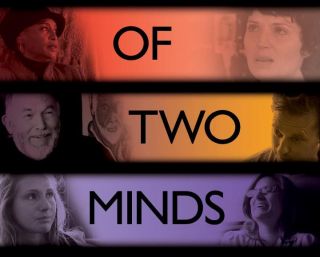Bipolar Disorder
Of Two Minds: New Documentary Film Explores Bipolar Disorder
Of Two Minds examines the issues faced by people with bipolar disorder.
Posted August 21, 2012

Of Two Minds is a new documentary film that follows four people who have bipolar disorder over three years.
The film depicts the subjects doing lots of normal things — interacting with family, getting ready for work, painting the walls, and cooking. I liked this aspect a lot.
The film is a great conversation starter. It opens the door to some important conversations that family and friends need to have with people who have bipolar disorder, and also that society needs to have more broadly.
Here is a fantastic quote from a review by Stephanie Schroeder, who has an upcoming memoir about her struggles with bipolar
"My girlfriend, who saw the film with me, asked afterwards if there was anything I felt I couldn’t share with her, am struggling with silently, or need assistance with. I don’t, but it’s actually one of the few times we’ve even broached the topic of my mental illness in that format. It was the first and only question she has initiated (vs. me talking about it) since ... four years ago"
Other important topics that the film broaches are:
- fear and stigma about "coming out bipolar" at work and in relationships
- that dealing with the disorder is exhausting
- that "playing normal" and hiding the disorder at work and in relationships is also exhausting
- that unmanaged episodes of mania and depression can wreck havoc in couples relationships and that the relationship skills level required of people with bipolar disorder in order to have successful relationships is very high
- the exorbitant cost of medication. One subject mentions her Rx bill costs her $600 a month and she has been repeatedly rejected for insurance. Even with "Obamacare" this is not an outdated conversation, due to the cost still being unaffordable for many people, especially with preexisting conditions. Medication costs are on top of psychiatrist and therapy bills.
- attempting to manage the disorder without medication, due to reluctance to take medication or medication being unaffordable.
The film is quite well balanced in some respects. Two of the subjects are taking medication, two aren't. One subject says that medication negatively affects her creativity but another subject offers a differing view. However, all of the main subjects are in creative fields and white. There are some supporting interviews with people of color but I felt a little irked that these were relegated to supporting.
A few tips for people who have bipolar who go to this movie:
- Be open, curious, and accepting about whatever reaction you have. You might feel hopeful or hopeless, less alone or more alone, frightened, activated, or angry — these are all possible and acceptable reactions.
- Talk to your therapist about your reactions. As I said earlier, this film is a great conversation starter. Also talk to your family and friends. Encourage family and friends to broach the topic with you. It's often a great idea to invite your partner or parent to one of your therapy session so they can feel more involved in how you are managing your disorder.
- Agree on a plan for what you and they are going to do if you become manic or depressed (example, although not specific to bipolar disorder - Personalized Plan for Coping with Low Mood or High Anxiety). List what the warning signs are of your mood becoming manic or depressed. Also list the things that help you keep your mood on an even keel when you're feeling well (don't forget to include simple things like getting a long hug at the end of the day or your nightly ritual of turning off your cell phones at 9pm).
Of Two Minds is screening twice daily until Aug. 23 at the IFC Center in Manhattan and then in Los Angeles Aug. 24 to Aug. 30. For more information and to view the film's trailer, see the film's website http://www.oftwomindsmovie.com/. See here for a list of upcoming screenings in other cities or ask your local independent theater to screen it.
If you liked this article
If you liked this article, you'll probably like this one on 50 Common Cognitive Distortions.
 Subscribe to Dr Alice Boyes's articles
Subscribe to Dr Alice Boyes's articles
You can get an email alert whenever Dr Alice Boyes writes a new blog article - Subscribe.
You can read my prior articles for Psychology Today here.
Alice's Twitter @DrAliceBoyes




